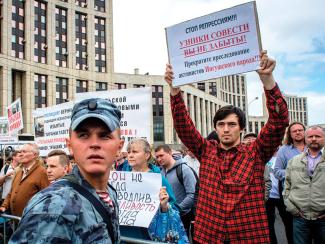Democracy around the world is in decline. In 2022, according to Freedom House, a nonprofit organization founded in 1941 to defend democracy and freedom worldwide, only one in five individuals globally lived in a country that can be described as “free.” This is an alarming trend, especially when contrasted with the widespread optimism during the 1980s and 1990s about the universal triumph of democratic values. The democratic recession raises important questions about the best form of government. The most consequential of these questions is also the most basic — namely, is democracy still the best form of government? The answer is a resounding “yes,” though not for the typical reasons.
As the Cold War was coming to a close in 1989, an influential argument was made by political scientist Francis Fukuyama about the “end of history.” Fukuyama saw signs of the coming together of two trends. One was the crisis of nonmarket systems for organizing economic activity, such as the central planning practiced in the Soviet Union and in its Eastern European satellites. The other was the movement towards democratization, which had begun with the toppling of dictatorships in Spain and Portugal in the mid-1970s and would soon engulf other countries in Europe, Asia, Africa and Latin America. The 1990s were the heyday of democracy promotion around the world. Markets triumphed and more countries were becoming democratic. It seemed that history had indeed ended.
But the 21st century brought in the painful realization that democracy and the market need not go hand in hand. Two powerful states reemerged on the global scene — China and Russia — which offered examples of successful market economies that resolutely opposed democratization. What is more, the two countries have worked assiduously to export their model of development to autocrats around the world who want prosperity without the risks to stability in office that are presented by multiparty political competition. Today, the global liberal political order is under assault from both autocrats and populists. History appears to be ending again, this time with democracies rather than autocracies being threatened with extinction.































































